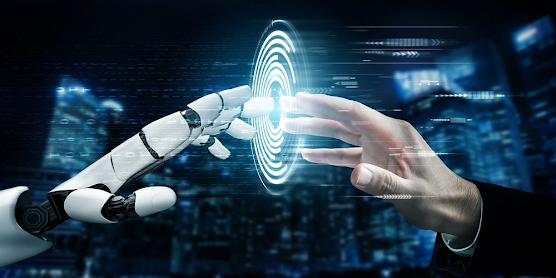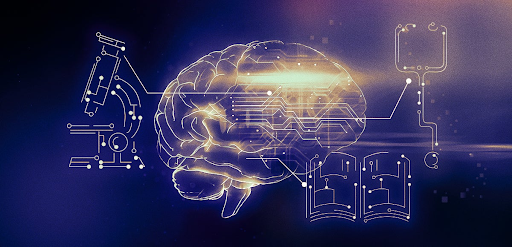How AI is Changing Daily Work Routine: Is it Beneficial or Harmful for Humans?
In today's fast-paced world, technology is advancing at an unprecedented rate, and one of the most significant developments is Artificial Intelligence (AI). AI is reshaping various aspects of our lives, including our daily work routines. From automation to data analysis, AI is making an impact on businesses and industries worldwide. In this article, we will explore how AI is transforming the way we work and discuss its potential benefits and drawbacks for human workers.
Understanding AI and Its Role in Daily Work
Artificial Intelligence refers to computer systems that can perform tasks that typically require human intelligence. These tasks encompass a broad range of activities, from simple calculations to complex decision-making processes. AI systems are designed to learn from data, identify patterns, and adapt their actions accordingly, often leading to more efficient and accurate outcomes.
In daily work routines, AI is being utilized in various ways. One prominent application is automation, where AI-powered bots and machines are handling repetitive and mundane tasks. This allows human workers to focus on more strategic and creative aspects of their jobs, leading to increased productivity and job satisfaction.
The Benefits of AI in Daily Work
Increased Efficiency: AI's ability to automate tasks and processes leads to significant time savings. Repetitive tasks that once consumed valuable hours can now be completed in a fraction of the time, allowing employees to concentrate on tasks that require critical thinking and problem-solving skills.
Data Analysis and Insights: AI can analyze vast amounts of data at an impressive speed, extracting valuable insights and trends that human analysts might miss. This data-driven decision-making empowers businesses to make more informed choices and stay ahead of the competition.
Personalized Experiences: AI can analyze customer preferences and behavior to deliver personalized experiences. For instance, in the marketing industry, AI-powered algorithms can recommend products or content tailored to individual customers, improving customer satisfaction and retention.
Improved Safety: In hazardous work environments, AI-powered robots can perform dangerous tasks, reducing the risk to human workers' health and safety.
24/7 Availability: AI systems can operate around the clock without fatigue or breaks, ensuring that critical processes are continuously monitored and attended to, enhancing overall business operations.
AI's Impact on Job Market and Human Workers
While the benefits of AI in daily work are undeniable, its widespread adoption has also raised concerns about potential drawbacks, particularly for the job market and human workers.
Job Disruption: As AI continues to advance, certain job roles may become automated, leading to job displacement for some workers. Jobs that involve repetitive, rule-based tasks are at a higher risk of being automated.
Reskilling and Upskilling: To adapt to the changing job landscape, it is essential for workers to invest in reskilling and upskilling themselves. By acquiring new skills and knowledge, employees can stay relevant in the job market and embrace new opportunities created by AI.
Ethical Considerations: The use of AI raises ethical questions, especially when it comes to decision-making algorithms. Bias in AI systems can lead to unfair treatment and discrimination, which requires careful monitoring and regulation.
Human-AI Collaboration: Instead of replacing human workers, AI should be viewed as a tool for collaboration. Finding the right balance between human and AI capabilities can lead to more productive and harmonious work environments.
Embracing AI for a Better Future
As AI continues to transform daily work routines, businesses and individuals must embrace this technology while addressing the challenges it presents. Here are some ways to harness the power of AI for a better future:
Invest in Education: Governments and organizations should invest in educational programs to prepare the workforce for AI-driven workplaces. This includes promoting STEM (Science, Technology, Engineering, and Mathematics) education and providing resources for continuous learning.
Ethical AI Development: Developers and policymakers must prioritize ethical AI development, ensuring transparency, fairness, and accountability in AI algorithms. Regular audits and assessments can help identify and rectify biases in AI systems.
Encourage Innovation: Encouraging innovation in AI can lead to groundbreaking applications that benefit businesses and society. Startups and research institutions should be supported in their efforts to explore the full potential of AI.
Collaboration and Dialogue: Governments, businesses, and experts should collaborate and engage in open dialogues about the impact of AI on society. By working together, we can find solutions to potential challenges and ensure AI's responsible use.
Conclusion
AI is undoubtedly changing daily work routines, and its impact is both beneficial and challenging. The increased efficiency, data analysis capabilities, and personalized experiences brought by AI can revolutionize industries and enhance human productivity. However, there are concerns about job disruption and ethical considerations that require attention.
To truly harness the potential of AI, it is essential to strike a balance between technology and humanity. By investing in education, fostering ethical development, encouraging innovation, and promoting collaboration, we can create a future where AI and human workers thrive together. Embracing AI responsibly will pave the way for a more advanced and prosperous society.
In conclusion, AI is a powerful tool that has the potential to reshape our daily work routines, but its success depends on how we choose to wield it. By staying informed, adaptable, and compassionate, we can lead the way into an AI-enabled future that benefits everyone.





Comments
Post a Comment